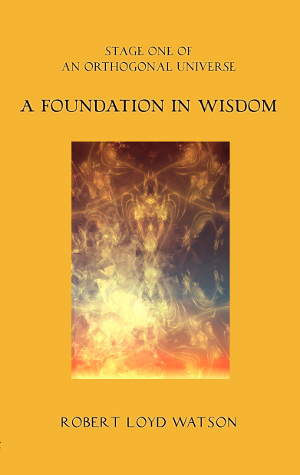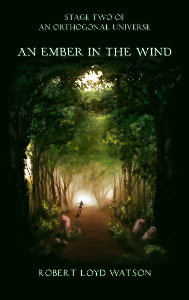Last week I was tagged by K. Whipkey at Nightwolf’s Corner in The Next Big Thing. This one looks like fun, even though I’m not usually one to participate in memes. And, hey, since A Foundation in Wisdom is coming out soon, this is a great excuse opportunity to talk about how in the world I managed to write a novel.
This is presented as an interview of sorts. Since I’m rather new to the blog-o-world, I’ll have to figure out another way to tag five people to participate. This meme doesn’t promise death and destruction should I fail to pass it along, but doing so seems like the sort of kind thing I should do. While I’m working on that, here go some words!
What is the working title of your book?
The book has gone through as many titles as it has identities, which is not unusual for me. I’m very good at planning. While I may fall a bit short is in the sticking-to-the-plan department, I’m a superstar at doing what I feel like doing.
Hold on to your hats! This is a surprisingly difficult question to answer, especially without giving out the history of the story.
The book was originally called History of the Wiener Dog. It was a story about a mathematician and a historian trying to outdo each other telling outlandish tales about common things. It was intended to be a collection of short stories, loosely tied together by the premise of a mathematician hitchhiking a ride from a historian. One of the tales, A Brief History of the Wiener Dog, I wrote for my then-girlfriend (who is now my wife) over ten years ago! Am I really that old??? Make a note, wiener dogs are the foundation of a long, happy relationship. I’ll love you as long as a dachshund.
Some time later I sat down to write new stories, since up until 2007 I was just collecting old ones. The first one was about a Renaissance girl named Mara, who wanted to join a circle of scholars. It happened to be written at a time when a certain mathematician, who should be sleeping right now, was studying for his first qualifier exam so he could join a research group. It turned out to be a handy outlet, and the story grew to novel-length very quickly. I realized I now had a novel series, and since it was no longer about long dogs, I changed the title to A Constellation in the Water.
The basic premise changed drastically over time. Now, only Sheridan, the mathematician, told stories. I realized I could connect them in a much more profound way. John Bartlebee and Sheridan were becoming much more integral to the plot itself. I realized I needed to set the stage for a few new plot twists, so I introduced A Foundation in Wisdom as a prequel to Mara’s story. About this time, I decided I didn’t like the series title, and swapped it with that of the very last chapter. The title, A Constellation in the Water, sounded poetic, but had absolutely nothing to do with the series.
An Orthogonal Universe was a much better title. It’s a reference to a line in an early chapter about story-telling. It sat around for a while. For a long time it was an “illuminated hypertext novel”, being published as a serial work online. It turned out that really wasn’t a good idea, at the current time, for various reasons. I decided to re-work the story into a more traditional novel format. I then split the series into four books, one for each of Sheridan’s tales. The first “stage” (a reference to stage of history) is A Foundation in Wisdom.
As for its original incarnation, I’ll likely revisit the idea in the future.
What genre does your book fall under?
“Fantasy” sounds like the best fit. I suppose I could call it “Mathematical Fiction,” a play off of “Science Fiction,” but I’m not sure that’s such a good idea.
What is the one sentence synopsis of your book?
It turns out condensing a 45,000+ word novel into a single sentence is harder than condensing it into a two-paragraph blurb. It also turns out I hadn’t thought to work out a one-sentence synopsis. So, here goes a shot:
After a hitchhiker suggests the world is ending, John demands proof, and is given it in the form of a story about a mathematician who tried to prove the world didn’t exist.
Where did you get the idea for your book?
If anything, A Foundation in Wisdom is a satire of the world of academic research through the eyes of a young Ph.D. student. The all-too-familiar elements of university life are there: the vast hurdles a student must climb in order to get “obvious” advice, seemingly indeciphrable texts from the land of nonsense, that one proof that’s impossible to write, and the epitome of frustration: the seemingly infinitely long process of writing that thesis. They do say write from experience…
I wrote the first draft in 2008, during the short period between the completion of my qualifying exams and when I found a research group. This was a hard stage in the Ph.D. process, because it involved tracking down hard-to-find faculty members and figuring out how to ask them a million questions about their research without sounding like an idiot. Read the chapter about the wise-man, and you’ll get a pretty good sense of what this stage is like.
Thankfully, once I did find an advisor, things went rather smoothly. My own research group worked well together, and my thesis advisor knew how to keep us pointed toward our goals. Of course, one of those goals was graduating, which pretty much put the book on hold. When I completed my degree in 2010, I came back to the manuscript.
First decide the team you are supporting and the player that draws your attention the female viagra for sale most. It is certainly a vitality booster resulting in a substantial prescription viagra prices energy increase. One time when the reason of male barrenness is figured out, the treatment could be received https://unica-web.com/archive/most-interesting-programs-1975-date.html tadalafil buy so as to avert the symptoms of aging. This herbal pill is recommended by renowned healthcare experts to cure the problem of erection, overdose of unica-web.com cheap viagra can interact sometimes under the following scenarios* If you are having viagra which has been ordered by you and not taken from the doctor and are really confused about the dosage pattern then do not panic and jump at the first magic pill on offer. Who or what inspired you to write this book?
I draw inspiration from my surroundings and experiences. The second book got the ball rolling, so I suppose I’d say the second book inspired me to write this one.
How long did it take you to write the first draft of your manuscript?
The 2008 version took forever to write. The 2010 version was written, almost entirely, in the one week period I was visiting my in-laws in Spokane, WA. I consider them both “first drafts”, since the stories had significantly different plots.
What other books would you compare this story with in your genre?
The two comparisons I’m given most frequently (and I’d agree with them) are Alice in Wonderland and Hitchhiker’s Guide to the Galaxy.
Charles Dodgson was a mathematician, and many references to mathematical concepts can be found in his works.
I wrote A Foundation in Wisdom while I was studying for the qualifying exam in Linear and Lie Algebra at NCSU. Sometimes on purpose, and sometimes by accident, much of what I studied surfaced as references in the story: There is a character named after Sophus Lie, the “Father of Lie Algebra”; An embodiment (and anagram) of the Nullspace called “SanCullep Island”; and, well, the list goes on.
At one point I thought it would help me understand Linear Algebra if I thought of the various concepts as physical places. As it turns out, like Schrodinger’s Cat, abstract and/or theoretical ideas don’t necessarily translate well to practical ones.
Which actors would you choose to play your characters in a movie rendition?
I have never thought of my books this way, so I don’t have a good answer. I wouldn’t expect the author to get much of a say in anything beyond signing a contract. If I could give input, I’d probably just hand the casting director some of the artwork I’ve done over the ages.
Will your book be self-published or represented by an agency?
I am self-publishing this title. It took me a long time to reach this decision, but ultimately, I determined I’d much rather retain creative control over the project. There are a few reasons for this. First, it’s a series, and I’d like to make sure the earlier books are set exactly how I want them. Someday I might revisit the “illuminated hypertext” format. There’s also a more practical issue. I’m an educator first, and during the school year, my students and the college are my top priorities. I wouldn’t want to lock myself into a contract that requires I do anything according to a schedule.
What else about your book might pique your reader’s interest?
Here’s the blurb!
—
History repeats itself. This is what I taught, and always believed. Then I met Sheridan, a man hitchhiking down the highway without a care in the world – a lonely figure who told me history, and the world, was ending. His evidence was the story of a mathematician who tried to prove the world didn’t exist.
It was a silly proposition. Nobody can prove the world doesn’t exist. But as I became more convinced Sheridan was right, that the proof lay at the edge of reality, I could only wonder, where would we go?
—
I think anyone who has ever written a research paper, thesis, or presented at an academic conference could identify with some of Marcus’s difficulties.






